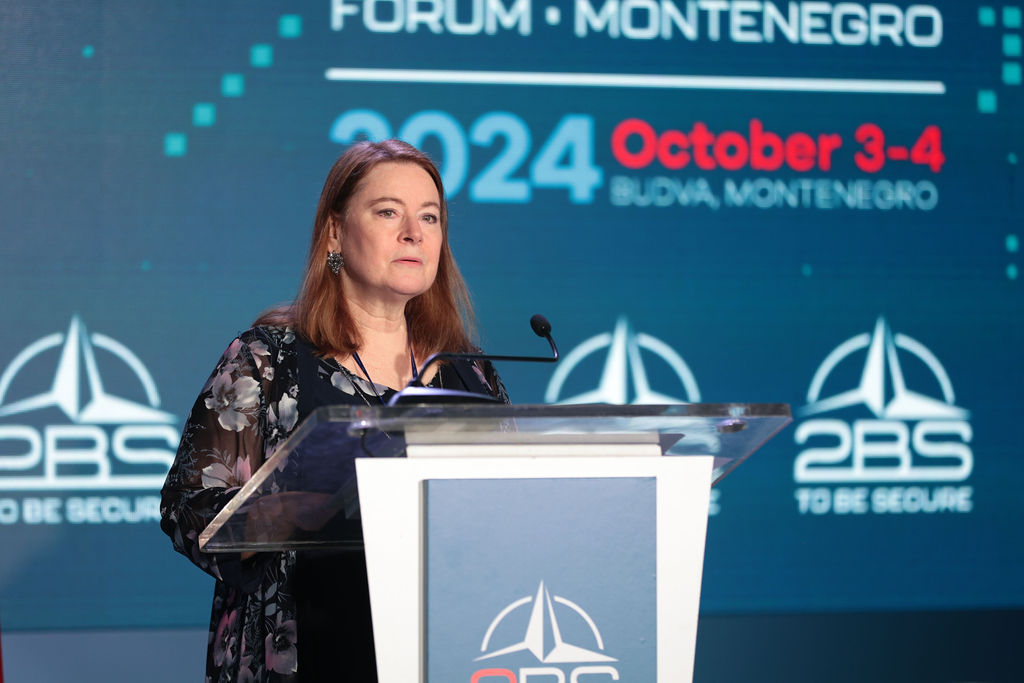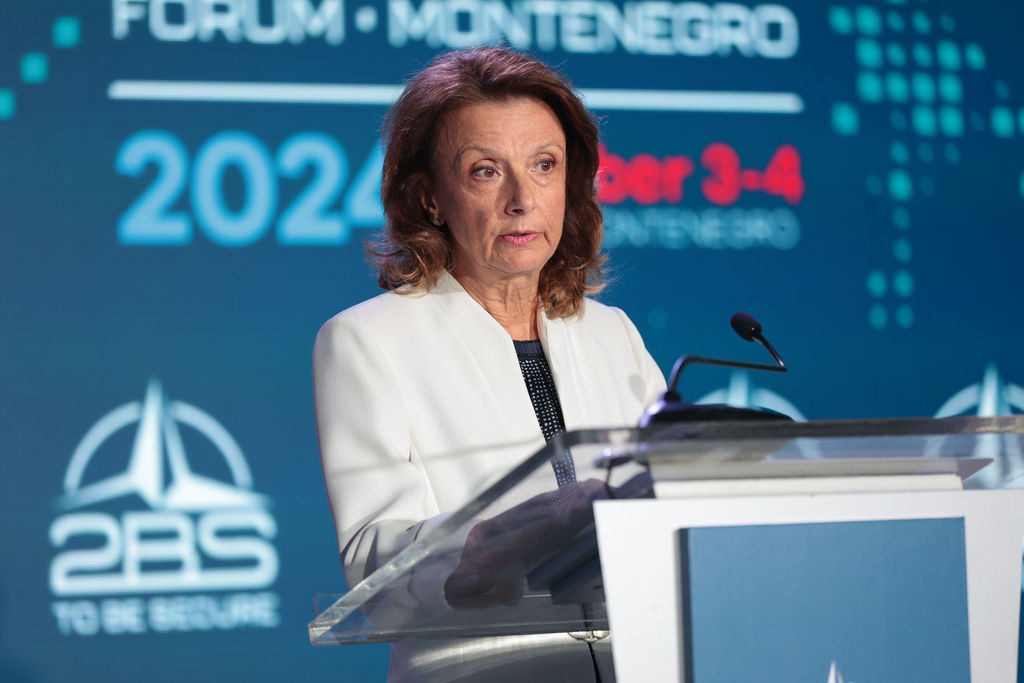Montenegrin society is under enormous pressure aimed at weakening cohesion based on civic, secular, and European values, in favour of nationalistic and populist irresponsible manipulations, which further weaken the already insufficiently developed institutions. This was stated by Pejanović-Đurišić, president of the Atlantic Council of Montenegro, at the opening of the 14th 2BS Forum.
Pejanović-Đurišić believes that Montenegro, as a NATO member and the most serious candidate for EU membership, is at a critical point that will determine its future.
“In a country that is firmly committed to its Euro-Atlantic path, neglect of external challenges mustn’t be allowed, as they can very easily turn into internal problems,” considers Pejanović-Đurišić.
“The topic of this year’s Forum – World in Disorder: Turning Adversity into Opportunity – best reflects our reality,” says Pejanović-Đurišić.
“At a global level, we are facing significant changes, conditioned by both the wars being fought on the European continent and in the Middle East, as well as other numerous, less visible conflicts in the world, which all require rapid adaptation and stronger cooperation among transatlantic partners,” said Pejanović-Đurišić.
“On the other hand,” she adds, “well-known regional challenges gain intensity once again, and pose a significant burden for the Western Balkans, slowing down progress in European integrations and overall development.”
“Europe is facing one of the most complex periods in recent history. Russian aggression against Ukraine has entered its third year, and its effects are felt as strongly as at the beginning of the war. We will not stop reiterating that this conflict is not just a military confrontation but also represents a direct challenge to the post-Cold War international order and the fundamental principles of international law. Ukrainian resistance has therefore become a symbol of the global struggle for the preservation of the sovereignty and territorial integrity of every independent state in the world, as well as the defence of democratic values against totalitarian tendencies,” emphasised Pejanović-Đurišić.
Pejanović-Đurišić believes that propaganda and disinformation campaigns, often originating from Moscow via Belgrade and Banja Luka, aim to destabilise the region, incite interethnic tensions, and slow down European integrations. On the other hand, Chinese economic influence remains part of the geopolitical pressure that further complicates the regional dynamics.
“For Montenegro, these tendencies mean that we must be more cautious than ever. As a NATO member and the most serious candidate for EU membership, our country is at a critical point that will determine its future. In a country that is firmly committed to the Euro-Atlantic path, we must not allow the neglect of external challenges, which can very easily turn into internal problems,” states Pejanović-Đurišić.
“Political polarization, ethnonationalism, and vulnerability to foreign malign influences represent,” she adds, “far more serious threats to our democratic development and progress toward full integration into European structures than those at the highest domestic levels are willing to recognize and consequently make the necessary adjustments to public policies.”
“It should not be necessary to illustrate the fact that Montenegrin society is under enormous pressure aimed at weakening the cohesion based on civic, secular, and European values, at the expense of nationalist and populist irresponsible manipulations, which further weaken the inadequately developed institutions, consequently jeopardizing the stability of the system in all its segments,” assessed Pejanović-Đurišić.
According to Pejanović-Đurišić, these challenges are not insurmountable; rather, they present an opportunity to strengthen institutions, improve processes, and demonstrate the resilience of our civic society.
“The path to the EU, although challenging, must remain a strategic goal and a key factor for internal cohesion and stability. The Atlantic Council of Montenegro, as one of the leading advocates of Euro-Atlantic values in the country, will continue to be a partner to all those working to strengthen these processes. In this regard, I hope that the expressed support from the Government of Montenegro not only for the Forum but also for maintaining a strategic dialogue after the Forum signifies a readiness to overcome the stagnation in promoting and adopting Euro-Atlantic values and principles,” concluded Pejanović-Đurišić, adding that the 2BS Forum plays an invaluable role in strengthening the partnership between Montenegro and international institutions, such as NATO and the European Union, as well as in promoting Montenegro’s interests on the international stage.

The Ambassador of the United States in Montenegro Judy Rising Reinke stated that they fully support further progress in regional economic and security cooperation, particularly in Montenegro’s efforts towards European integration.
“However, identity politics, fueled and manipulated by malicious actors and their proxies, creates a climate of division that could handicap this country, as well as any other country where all members of different groups are not respected and accepted,” stated Reinke at the opening of the 14th 2BS Forum in Budva.
According to her, the power of true reconciliation lies in the hands of the people.
“Every citizen has the power of respect, tolerance, inclusion, and forgiveness, as well as the ability to reject provocations. The spread of tolerance, forgiveness, and respect is one of the keys in unlocking a safe and peaceful future,” concluded Reinke.
